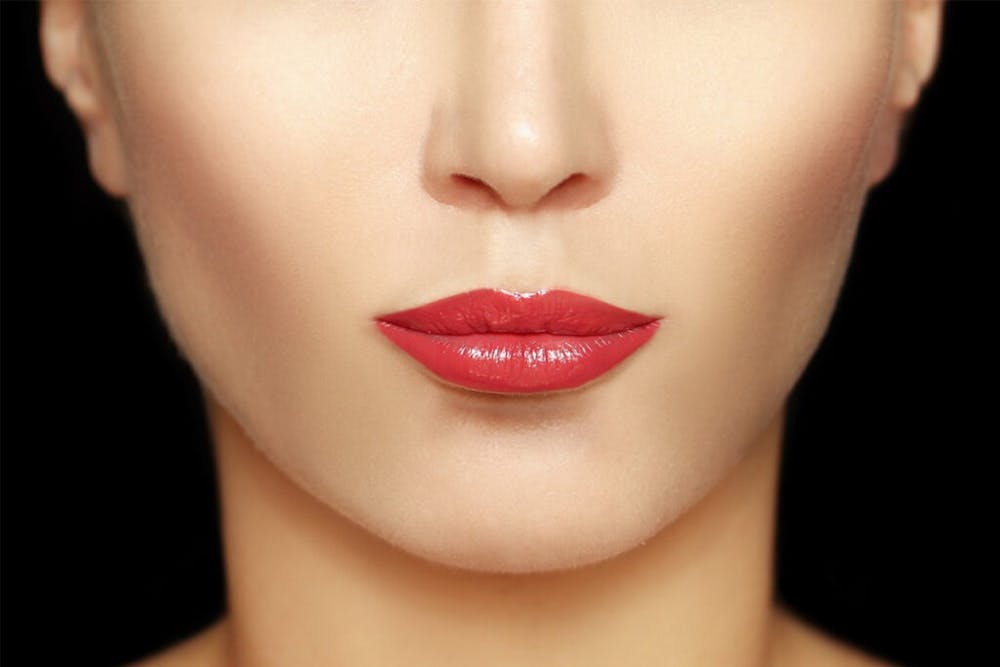
Lip reduction surgery is a transformative procedure that can enhance your facial appearance by reducing excess tissue in the lips. If you are considering this surgical procedure, it is essential to understand the dos and don’ts for a successful lip reduction surgery recovery. In this article, Dr. Panossian will guide you through each step of the recovery process and provide valuable insights into achieving the best results.
What is Lip Reduction Surgery?
Lip reduction surgery, known as cheiloplasty, is a cosmetic surgery that removes excess tissue from the lips. This surgical procedure is performed through horizontal incisions, which are strategically placed to minimize visible scarring. During the procedure, the plastic surgeon will carefully remove skin tissue and close the incision with stitches to sculpt your lips.
Lip Reduction Preparation
Before undergoing a lip reduction procedure, consult with an experienced plastic surgeon like Dr. Andre Panossian. Discuss your goals and expectations, and ensure you are an ideal candidate for the procedure. In addition, your surgeon will provide you with detailed pre-operative instructions, which may include fasting before the surgery and discontinuing blood-thinning medications to reduce the risk of complications.
Candidacy for Lip Reduction Surgery
A suitable candidate for lip reduction surgery should have realistic expectations, be in good overall health, and have a desire for improved lip aesthetics. It is preferred that candidates are non-smokers or willing to quit smoking before and after the procedure to promote optimal healing and results.
Achieve Your Ideal Lip size
Discuss your desired size of lips with your surgeon before the procedure. Clear communication ensures you achieve your desired outcome. Your surgeon will take into account your facial features and provide recommendations to achieve a balanced appearance that complements your face.
The Recovery Process
After the surgery, expect temporary swelling and discomfort. It is crucial to follow post-op instructions carefully to ensure a smooth recovery. You may notice some bruising, but this is a natural part of the healing process and will subside with time. The recovery time for lip reduction is typically 1-3 weeks, remember that the full results may take time to become fully apparent.
Start a Soft Diet Immediately After the Procedure
A lip reduction patient needs to follow a soft diet during the initial recovery period. Avoid spicy or hard foods to prevent irritation to your healing lips. Opt for nutrient-rich, soft foods like soups, yogurt, and mashed potatoes to support the healing process. Stay hydrated to aid in the recovery process as well.
Avoid Heavy Exercise During the Recovery Period
During the initial recovery period, it is important to avoid heavy exercise. Cardiovascular activities and intense workouts can increase your risk of complications such as bleeding or infection due to increased blood flow. Additionally, vigorous physical activity can cause undue stress on your healing lips. Instead, opt for lighter forms of exercise, such as walking or stretching, to maintain your fitness level while allowing your lips to recover.
Take Pain Medication as Prescribed by Your Doctor
Your surgeon will prescribe anti-inflammatory, antibiotic, or analgesic medication to manage any post-operative discomfort. Follow the recommended dosage and consult your surgeon if you experience any adverse effects. Additionally, you can apply ice packs to the treated area to help alleviate pain and reduce swelling during the initial days of recovery.
Apply Ice Packs to Reduce Swelling and Bruising
Swelling is a natural part of the recovery process. Apply cold compresses as directed to minimize swelling and discomfort. Keep in mind that while some swelling is expected, it should gradually decrease over the first few weeks. If you have concerns about excessive or prolonged swelling, do not hesitate to contact your surgeon.

Keep Your Incisions Clean
Maintaining excellent oral hygiene is vital. Gently clean your teeth and mouth to prevent infection and promote healing. Rinse your mouth with a saltwater solution as recommended by your surgeon to keep the surgical site clean and reduce the risk of infection.
Watching Out for Allergic Reactions
Be vigilant for signs of allergic reactions to medications or materials used during surgery. If you notice any unusual symptoms, contact your surgeon immediately. Common signs of allergies can include itching, rash, hives, or difficulty breathing. Prompt communication with your medical team is essential in such cases.
Sleep in an Elevated Position
It is important to sleep with your head elevated during the recovery period. This will help reduce swelling and promote healing. You can use extra pillows or a foam wedge to prop up your head while sleeping or resting. Avoid laying flat for long periods, as this can increase swelling and impede the healing process.
Follow All Instructions Provided by Your Surgeon Carefully
Following all instructions provided by your surgeon carefully is key to a successful recovery. Be sure to ask questions if you are unclear about any post-operative instructions. Additionally, it is important to follow the recommended guidelines for activity levels.
Don’t Smoke During Your Healing Process
Smoking has negative effects on the recovery process. It can delay healing, increase the risk of infection, as well as cause other complications. Smoking also reduces blood flow to the lips, which further delays the healing process. It is recommended that smokers quit before undergoing lip reduction Pasadena, as well as remain smoke-free during the recovery period.
Don’t Drink Alcohol While Taking Post-Surgery Medication
Do not drink alcohol while taking medication after the surgery. Alcohol can interact with certain medications, making them less effective or harmful. It can also slow down the healing process by reducing blood flow to the lips.
Recovery Period: What’s Normal and What’s Not
It is normal to experience some mild discomfort, swelling, and bruising during the initial days, but if you notice severe pain, excessive bleeding, or signs of infection, contact your plastic surgeon promptly.
Some temporary changes in lip sensation are normal too. However, if you experience persistent numbness or discomfort, inform your surgeon. The sensation typically returns gradually over time, and your surgeon will monitor your progress during follow-up appointments.
How to Minimize Potential Visible Scars?
Proper wound care and following your surgeon’s advice can help minimize visible scars. Avoid exposure to direct sunlight on the surgical site, as UV radiation can cause scars to darken and become more noticeable. Your surgeon may recommend scar-reducing creams to further enhance the appearance of the incision sites.
The Role of an Experienced Surgeon
Choosing an experienced plastic surgeon like Dr. Andre Panossian is crucial. They will guide you through the process and ensure the best possible results. A skilled surgeon has a deep understanding of lip anatomy and can tailor the procedure to your unique needs, enhancing both safety and aesthetic outcomes.
Embark on Your Lip Transformation Journey Today!
To begin your lip reshaping surgery journey, schedule a consultation with Dr. Andre Panossian, a board-certified plastic surgeon. In this appointment, you can discuss your goals and create a personalized treatment plan. You will have the chance to ask questions about the cost of lip reduction, address any concerns, and learn about the procedure and recovery process.


